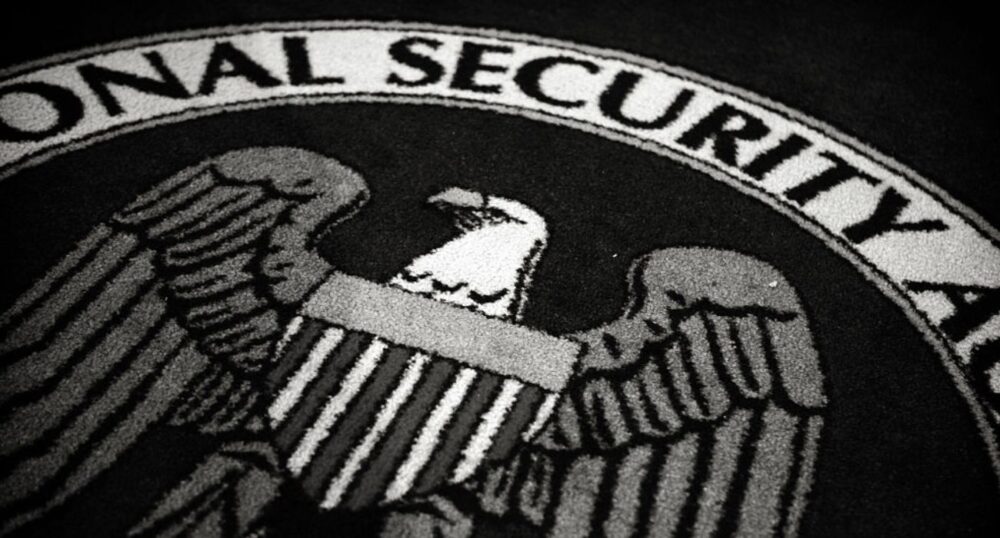The much-debated Foreign Intelligence Surveillance Act reauthorization bill that the House just passed may include a provision that some say will force nearly the entire structure of the internet to serve as the surveillance arm of the National Security Agency.
FISA reauthorization moved on to the Senate with the infamous Section 702, which permits warrantless spying of Americans, intact despite repeated efforts by Republicans and some Democrats to limit its provisions.
Soon afterward, however, observers drew attention to the fact that, rather than containing the same alleged government overreach provisions as before, Section 702 now contains new language that actually increases the government’s ability to surveil Americans’ communications without their knowledge.
That was the assessment of Elizabeth Goitein, co-director of the Liberty and National Security Program at the Brennan Center for Justice, who warned that the language of Section 702 contains a revision that redefines “electronic communications provider.” As stipulated by the current wording, “companies like Verizon and Google must turn over the communications of the targets of Section 702 surveillance,” Goitein explained.
However, the proposed new definition of “electronic communications surveillance provider” has been expanded to include “any other service provider who has access to equipment that is being or may be used to transmit or store wire or electronic communications.”
According to Goitein, should the new definition become part of the law, it would profoundly impact the privacy many Americans take for granted.
“If the bill becomes law, any company or individual that provides ANY service whatsoever may be forced to assist in NSA surveillance, as long as they have access to equipment on which communications are transmitted or stored — such as routers, servers, cell towers, etc.,” she said.
Goitein’s take was endorsed by former NSA intelligence contractor and whistleblower Edward Snowden, who reposted her X thread on the matter while commenting, “The NSA is just DAYS from taking over the internet, and it’s not on the front page of any newspaper — because no one has noticed.”
The proposed expansion of government powers is just the latest element in Section 702 that has privacy advocates on both sides of the aisle in Congress accusing the federal authorities of trampling the Fourth Amendment.
Sen. Ron Wyden (D-OR) released a statement on Tuesday echoing his remarks on the proposed expansion of FISA 702 on the Senate floor, declaring, “There is a key question here: who should be forced to help their government spy?”
“Now, if you have access to any communications, the government can force you to help it spy,” Wyden said about the version of 702 being considered by the Senate. “That means anyone with access to a server, a wire, a cable box, a Wi-Fi router, a phone, or a computer. Think about the millions of Americans who work in buildings and offices in which communications are stored or pass through.”
Wyden also warned that the new law is especially insidious because any entity compelled to assist with the spying would be forced to keep it secret.
“This could all happen without any oversight. The FISA Court won’t know about it. Congress won’t know about it. The Americans who are handed these directives will be forbidden from talking about it. And unless they can afford high-priced lawyers with security clearances who know their way around the FISA Court, they will have no recourse at all.”
Wyden urged his colleagues not to be pressured into passing a bad bill because of a time constraint and called for Section 702 to be redrafted to “safeguard American’s privacy,” adding, “Under no circumstances should the United States Senate be cowed by those who say senators have no choice except to sign off on whatever piece of paper the executive branch requests.”
That sentiment was echoed by Sen. Rand Paul (R-KY), a vocal critic of FISA.
“We need to debate — we’ve had five years [to reauthorize the program] — I would think we’ve got time to debate whether or not it’s appropriate for our government to spy on its own citizens without a warrant,” he said, according to The Hill.
Section 702 will expire if not reauthorized by April 19, placing national security at unacceptable risk, according to FBI Director Chris Wray. However, a court ruling earlier in April will permit the program to continue for another year even if a renewal does not come in time, reported The New York Times.
Meanwhile, Rep. Jim Himes (D-CT), who co-sponsored the amendment that Goitein alleges gives the government the “ability to force ordinary businesses and individuals to serve as surrogate spies,” took to X to dismiss critics of the provision.
Responding to Sean Vitka’s characterization that his FISA amendment “facilitates Stasi-like powers, very plausibly for Trump,” Himes replied, “[L]ife is really too short to engage with people who need to use bombastic absurdities like ‘Stasi-like’. Yes I know exactly what is in there. Some of it is classified. And none of it is remotely ‘Stasi-like’. Sell your nonsense elsewhere.”
“Stasi” is a reference to the secret police agency of East Germany from 1950 to 1990 that surveilled and controlled East German citizens using a vast network of civilian informants.
The fight over Section 702 is part of a larger trend of cases in which federal agencies have been accused of abusing their authority to further political aims. As The Dallas Express has previously extensively covered, the FBI has repeatedly been accused of overreach and invasions of privacy, including by having banks turn over any customer transaction records referencing “Trump” or “MAGA” as part of the investigation into January 6 protests at the U.S. Capitol building.

